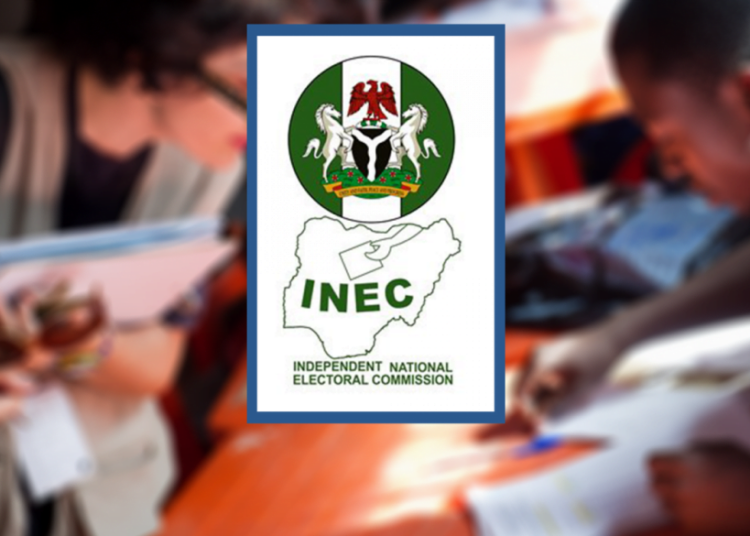The Independent National Electoral Commission (INEC) said the opposition African Democratic Congress (ADC) had nothing to fear over figures released by the Commission on the ongoing Continuous Voter Registration (CVR) in its first-week report.
ADC had faulted the numbers from Osun State, saying it defied historical patterns and demographic realities, with nearly 400,000 new registrations reportedly completed in seven days.
In a statement signed by its National Publicity Secretary, Bolaji Abdullahi, on Thursday, the ADC warned that if left unchecked, such figures could undermine confidence in Nigeria’s entire electoral process.
However, responding to the claims, the Chief Press Secretary to the INEC Chairman, Rotimi Oyekanmi said there was nothing unusual about the online pre-registration data.
Oyekanmi, in a statement on Thursday night, said this year’s registration pattern in Osun was similar to what occurred in June 2021 when the commission launched the online pre-registration for the first time.
He said 59,331 accounts were created within the first 24 hours of launching the portal on June 28, 2021, and by the second week on July 12, 2021, a total of 456,909 accounts were active.
“Interestingly, Osun State led with 154,893 pre-registrations at the time. In the third week, 752,011 persons had pre-registered and Osun State was at the front with 232,880.
“By the eighth week on 23rd August 2021, 2,215,832 persons had pre-registered with Osun State still leading with 365,412. In the 11th week of the exercise on 13th September 2021, 2,953,094 individuals had pre-registered, with Osun State still in the lead with 402,619.
“By 18th April 2022, a total of 8,271,647 Nigerians had pre-registered, and Osun was ahead of all States with 708,782 registrations.
“It will be recalled that the Commission rolled out the online pre-registration of voters on 18th August 2025, followed by in-person registration on 25th August 2025. In its usual tradition, the Commission released the data of online pre- registrations from 18th to 24th August, totalling 1,379,342. In the figures released, Osun State led the pack with 393,269, followed by Lagos State – 222,205. The Federal Capital Territory was third with 107,682,” Oyekanmi explained.
He noted that a simple search of past records already in the public domain would have revealed these facts if the party were proactive enough.
“The Commission was upfront during the last CVR exercise by releasing the data on a weekly basis, until it was concluded in 2022.
“Besides, all persons who pre-registered online were required to physically visit a designated centre to complete their registration process during which their biometrics were captured.
“Throughout the last CVR exercise which lasted over four quarters, the Commission paused after each quarter to display the preliminary voters’ register for claims and objections, to enable citizens draw attention to any individual not qualified to be on the register.
“At the same time, the Commission applied its robust Automated Biometric Identification System (ABIS) to detect and isolate double registrants,” he noted.
The Chief Press Secretary added that, “After all the processes and due diligence, over 14 million Nigerians were added to the National Register of Voters for the 2019 general election, pushing the figure from almost 70 million to 84,004,084 voters.
In the same manner, he noted that after the 2021/2022 CVR, over 9.4 million new voters were added to the register, totalling 93,469,008 for the 2023 general election.
“While it is not in the Commission’s place to develop conjectures on why any state has more registrants than others on our CVR portal, our duty as a Commission, which we take seriously, is to ensure that only real persons, who meet the criteria stipulated in the 1999 Constitution of the Federal Republic of Nigeria and the Electoral Act 2022 are allowed to register,” he said.
He assured that the Commission will continue to make information available to the public on the progress of the current online and in-person CVR.
INEC appealed to all well-meaning citizens to be circumspect in going public with information “based on sheer conjecture when they can rely on authentic and verifiable data available from our official repositories for both ongoing and historical record of our activities.”




